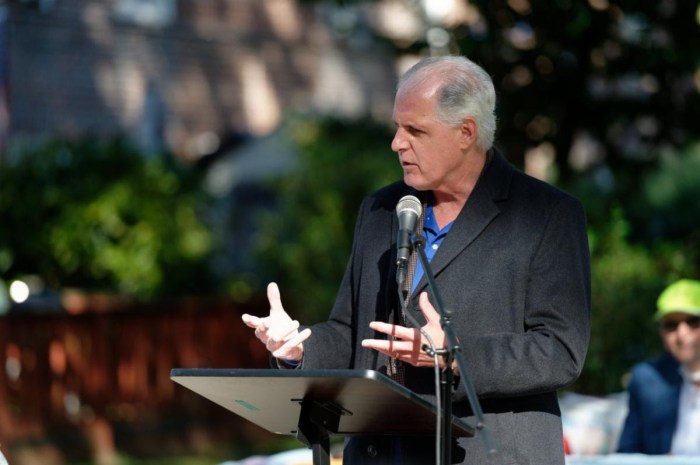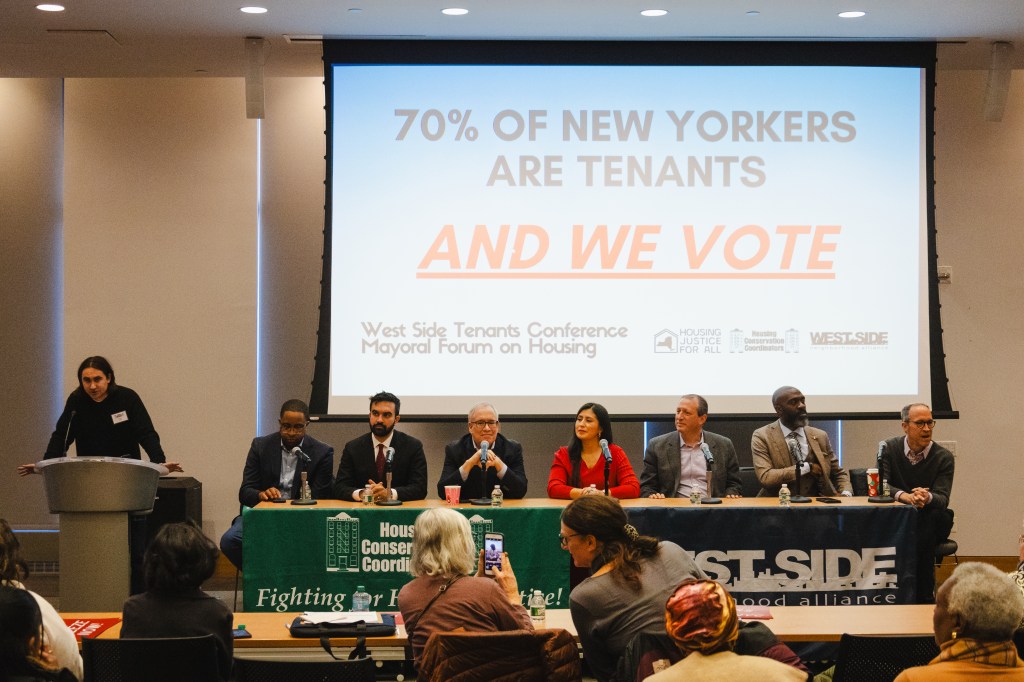By Stephen Witt
Business in the borough was good last year and a vast majority of business owners favor the proposed Atlantic Yards project, according to a Brooklyn Chamber of Commerce survey of its members. The survey was discussed at the recent Chamber Marketplace Breakfast and Economic Forum, held at the Bay Ridge Manor, 476 76th Street. “The data confirms what we have been hearing all year – that business was generally good in Brooklyn in 2005,” said Kenneth Adams, president of the Brooklyn Chamber. “Revenue was up, hiring was up, and there was a lot of new investment in the borough.” “At the same time, businesses – especially small businesses – are starting to feel the pinch of rising insurance, fuel and occupancy costs. The survey suggests that our Chamber members will approach the New Year with caution,” he added. The survey was sent out last October to 1,200 of the organization’s members. The overall response rate was about 15 percent or 177 responses. The survey was structured in five parts: The Brooklyn Economy, New York City Projects and Issues, Education and Workforce Development, Quality of Life, and Obstacles to Growth. Overall, 80 percent of the business owners surveyed said they did as well or better in 2005 than 2004. However, only 31 percent of the respondents think revenue will be higher next year, mainly due to rising energy and real estate costs. In fact, fuel or energy costs moved from seventh place to third place from the 2004 survey when businesses were asked to rank obstacles to growth. The cost of real estate jumped from sixth place to fourth in the same rankings of business woes. Retaining their ranking of first and second from the year before in perceived obstacles to growth are providing health insurance and the cost of general liability insurance. As was the case in last year’s survey, Atlantic Yards, the borough’s single largest economic development project that includes the building of an arena for the Nets, also received a majority of the members’ support. In total, 61 percent of the members polled said they support the project, while 18 percent said the oppose it, 18 percent said they are neutral and 3 percent said the project is not applicable to them or they don’t know. The 2004 survey revealed the same 61 percent support the project, while 15 percent opposed, 16 percent were neutral and 8 percent didn’t know. Members also expressed strong support for Coney Island redevelopment (82 percent were in support), creating a JFK rail link to Manhattan with two stops in Downtown Brooklyn (76 percent were in support) and the Cross Harbor Rail Freight Tunnel project linking New Jersey to Sunset Park (70 percent were in support). “Our members clearly understand the importance of large-scale economic development projects and infrastructure improvements that help to promote business expansion and job creation in the borough,” said Randolph Peers, the Brooklyn Chamber’s Vice President for Economic Development. Interestingly, the Chamber, which takes a position on a case-to-case basis for the siting of big box retail stores and national chains, also asked its members if they favor a Wal-Mart coming intro the borough. Although somewhat divided, 44 percent of the respondents opposed the giant retail chain coming to Brooklyn while 33 percent support Wal-Mart coming to Brooklyn. A new section included in this year’s survey measured concerns related to quality of life issues. Potholes and poor street conditions were cited by 78 percent of members as a problem. Litter was also a concern for 64 percent of those surveyed. The Chamber conducts the annual survey in order to develop the Chamber’s positions on key economic and legislative issues affecting the borough, and as a means to prioritize its advocacy agenda. The keynote speakers were State Comptroller New York State Comptroller Alan Hevesi and Independence Community Bank President and CEO Alan H. Fishman, who is also a past Chamber chair. The current Chamber Chair is Dan Holt, co-publisher of Courier-Life Publications. Hevesi’s speech focused on the need for continued reform on the statewide level, and noted that public authorities including local development corporations need more oversight.

































